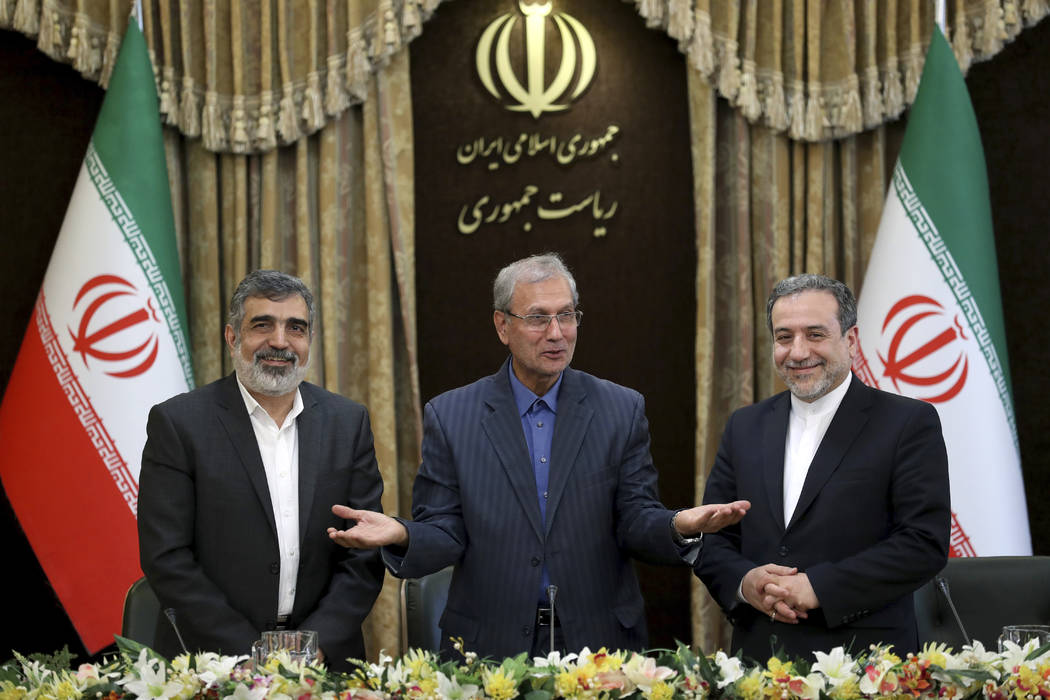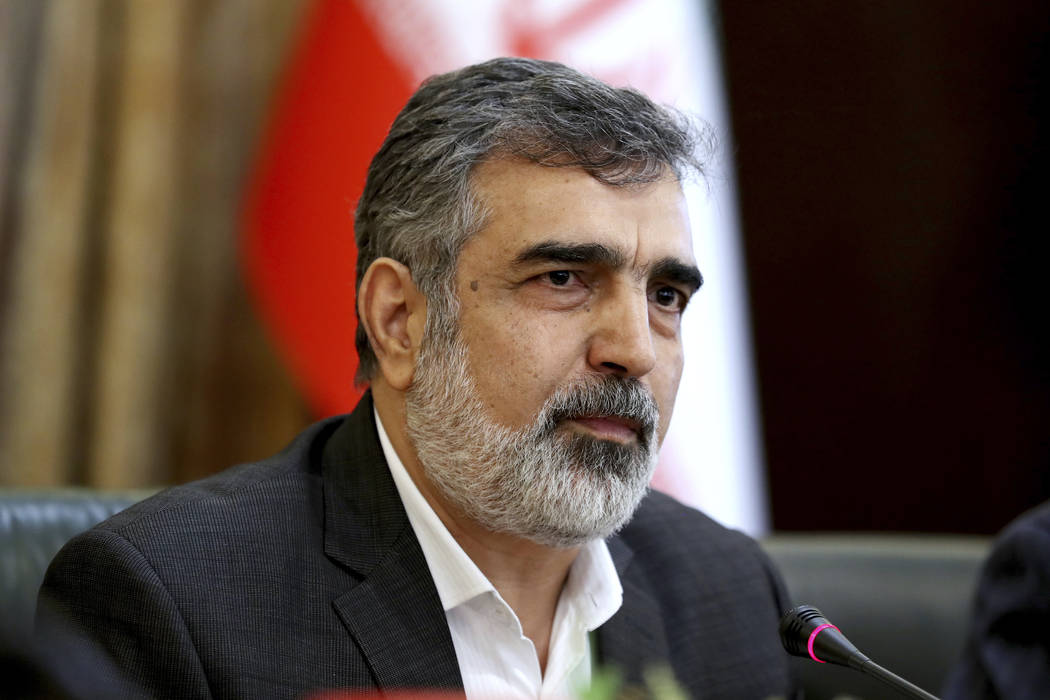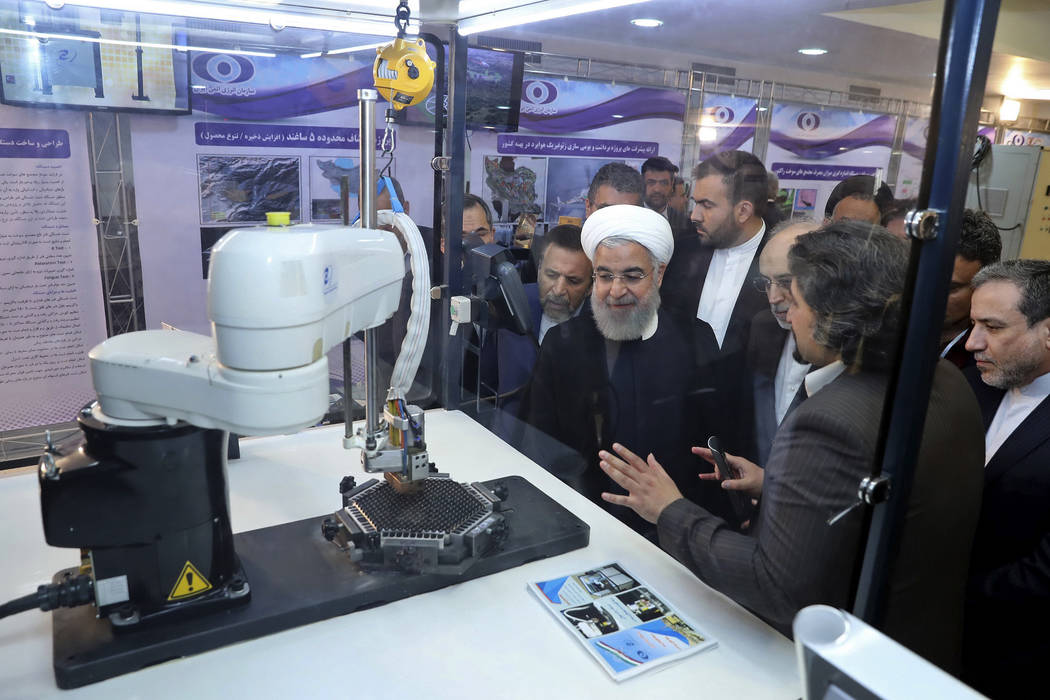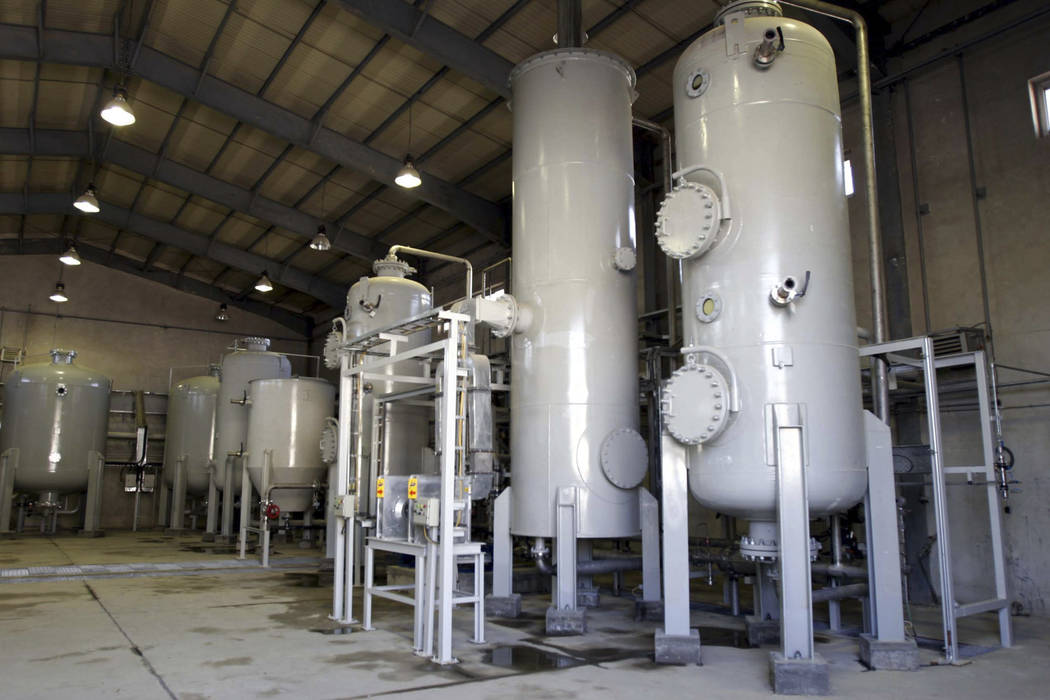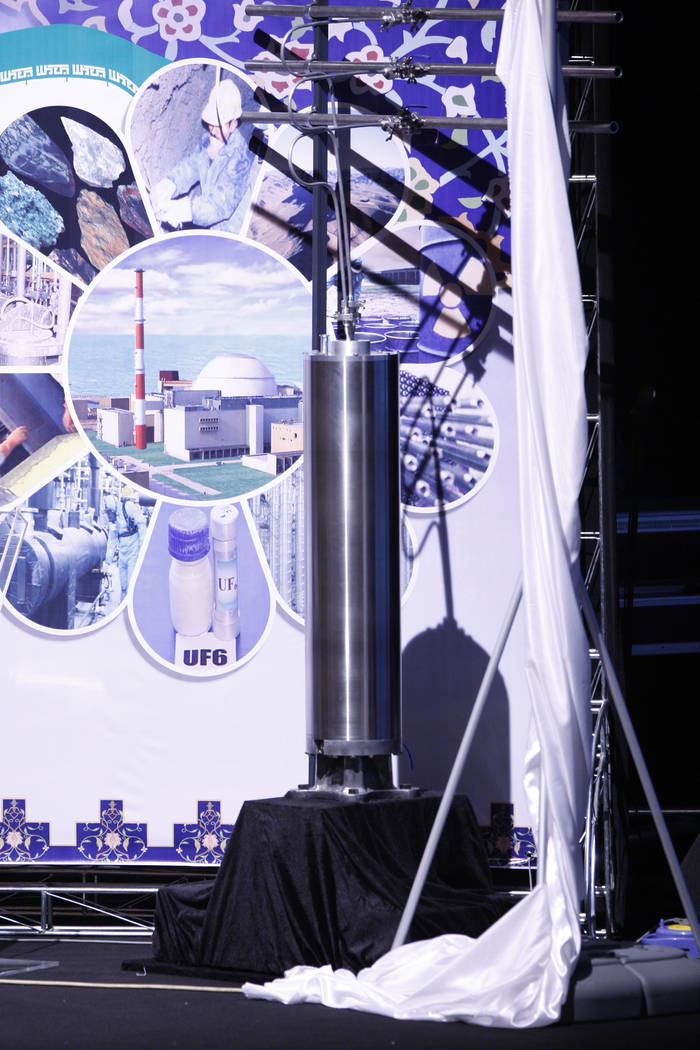Iran raises uranium enrichment beyond nuclear deal limits
TEHRAN, Iran — Iran increased its uranium enrichment Sunday beyond the limit allowed by its 2015 nuclear deal with world powers, inching its program closer toward weapons-grade levels while calling for a diplomatic solution to a crisis heightening tensions with the U.S.
Iran’s move, coupled with earlier abandoning the deal’s limit on its low-enriched uranium stockpile, intensifies pressure on Europe to find any effective way around U.S. sanctions that block Tehran’s oil sales abroad.
But the future of the accord that President Donald Trump unilaterally pulled the U.S. from a year ago remains in question. While Iran’s recent measures could be easily reversed, Europe has struggled to respond, even after getting a 60-day warning that the increase was coming.
Meanwhile, experts fear a miscalculation in the crisis could explode into open conflict, as Trump already has nearly bombed Iran over Tehran shooting down a U.S. military surveillance drone.
International reaction to Iran’s decision came swiftly, with Britain warning Iran to “immediately stop and reverse all activities” violating the deal, Germany saying it is “extremely concerned,” and Israeli Prime Minister Benjamin Netanyahu, a longtime critic of the accord, urging world powers to impose so-called “snapback sanctions” on Tehran.
The European Union said parties to the deal are discussing a possible emergency meeting after Iran’s announcement, with EU spokeswoman Maja Kocijancic saying the bloc is “extremely concerned” about the move.
Secretary of State Mike Pompeo tweeted: “Iran’s latest expansion of its nuclear program will lead to further isolation and sanctions. Nations should restore the longstanding standard of no enrichment for Iran’s nuclear program. Iran’s regime, armed with nuclear weapons, would pose an even greater danger to the world.”
Iran’s latest expansion of its nuclear program will lead to further isolation and sanctions. Nations should restore the longstanding standard of no enrichment for Iran’s nuclear program. Iran’s regime, armed with nuclear weapons, would pose an even greater danger to the world.
— Secretary Pompeo (@SecPompeo) July 7, 2019
At a news conference, Iranian officials said the new level of uranium enrichment would be reached later in the day, but did not provide the percentage they planned to hit. Under the nuclear deal, the cap for enrichment was set at 3.67%, a percentage closely monitored by inspectors from the International Atomic Energy Agency, the U.N.’s nuclear watchdog.
“Within hours, the technical tasks will be done and enrichment above 3.67% will begin,” Iran nuclear agency spokesman Behrouz Kamalvandi said. “We predict that the IAEA measurements early tomorrow morning will show that we have gone beyond 3.67%.”
The IAEA said it was aware of Iran’s comments and “inspectors in Iran will report to our headquarters as soon as they verify the announced development.”
Ali Akbar Velayati, an aide to Supreme Leader Ayatollah Ali Khamenei, made remarks in a video Saturday about Iran’s need for 5% enrichment. Bushehr, Iran’s only nuclear power plant, is now running on imported fuel from Russia that’s enriched to around 5%.
Iranian Foreign Minister Mohammad Javad Zarif sent a letter to EU foreign policy chief Federica Mogherini outlining the steps it had taken, said Abbas Araghchi, a deputy foreign minister. Discussions with European powers are continuing and ministerial-level talks are planned later this month, he said.
“We will give another 60-day period, and then we will resume the reduction of our commitments,” Araghchi said, without elaborating.
On Saturday, French President Emmanuel Macron told his Iranian counterpart, Hassan Rouhani, in a phone call that he is trying to find a way by July 15 to resume the dialogue between Iran and Western partners. It wasn’t clear if July 15 carried any importance. The U.S. has called for a special IAEA meeting for Wednesday to discuss Iran.
Kamalvandi stressed that Iran will continue to use only slower, first-generation IR-1 centrifuges to increase enrichment, as well as keep the number of centrifuges in use under the 5,060-limit set by the nuclear deal. Iran has the technical ability to build and operate advanced centrifuges that work faster but is barred from doing so under the deal.
“For the enrichment we are using the same machines with some more pressure and some special technical work,” he said. “So we don’t have an increase in the number of centrifuges for this purpose.”
But Kamalvandi stressed that Iran is able to continue enrichment “at any speed, any amount and any level.”
Enriched uranium at the 3.67% level is enough for peaceful pursuits but is far below weapons-grade levels of 90%.
The decision to ramp up uranium enrichment came less than a week after Iran acknowledged breaking the deal’s 300-kilogram (661-pound) limit on its low-enriched uranium stockpile. Experts warn higher enrichment and a growing stockpile narrow the one-year window Iran would need to have enough material for an atomic bomb, something Iran denies it wants but the deal prevented.
The steps taken so far by Iran show it is more interested in applying political pressure than moving toward a nuclear weapon, said Daryl G. Kimball, the executive director of the Washington-based Arms Control Association. He said Iran would need at least 1,050 kilograms (2,315 pounds) of low-enriched uranium to make the core of a single nuclear bomb, then would have to enrich it to 90%.
“Iran is not racing toward the bomb as some allege but these are calibrated moves,” Kimball told The Associated Press. However, “if Iran and the United States remain on the current course, the agreement is indeed in jeopardy.”
Netanyahu urged the international community to punish Iran for its decision.
“It is a very, very dangerous step,” he said. “I’m asking you, not to provoke but out of joint knowledge of history and what happens when aggressive totalitarian regimes can cross the threshold toward things that are very dangerous to us all. Take the steps that you promised. Enact the sanctions.”
However, Kimball cautioned against that.
“Iran is clearly not going to enter negotiations for a new deal if these sanctions are in place,” he said. “This a self-made, Trump administration crisis because it has been taking drastic measures to dismantle the (deal) without a viable Plan B.”
Associated Press writers Kiyoko Metzler in Vienna, Aron Heller in Jerusalem and Angela Charlton in Paris contributed.



